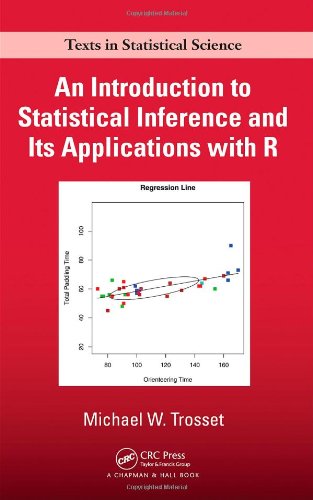

Most ebook files are in PDF format, so you can easily read them using various software such as Foxit Reader or directly on the Google Chrome browser.
Some ebook files are released by publishers in other formats such as .awz, .mobi, .epub, .fb2, etc. You may need to install specific software to read these formats on mobile/PC, such as Calibre.
Please read the tutorial at this link: https://ebookbell.com/faq
We offer FREE conversion to the popular formats you request; however, this may take some time. Therefore, right after payment, please email us, and we will try to provide the service as quickly as possible.
For some exceptional file formats or broken links (if any), please refrain from opening any disputes. Instead, email us first, and we will try to assist within a maximum of 6 hours.
EbookBell Team

4.8
64 reviewsEmphasizing concepts rather than recipes, An Introduction to Statistical Inference and Its Applications with R provides a clear exposition of the methods of statistical inference for students who are comfortable with mathematical notation. Numerous examples, case studies, and exercises are included. R is used to simplify computation, create figures, and draw pseudorandom samples—not to perform entire analyses.
After discussing the importance of chance in experimentation, the text develops basic tools of probability. The plug-in principle then provides a transition from populations to samples, motivating a variety of summary statistics and diagnostic techniques. The heart of the text is a careful exposition of point estimation, hypothesis testing, and confidence intervals. The author then explains procedures for 1- and 2-sample location problems, analysis of variance, goodness-of-fit, and correlation and regression. He concludes by discussing the role of simulation in modern statistical inference.
Focusing on the assumptions that underlie popular statistical methods, this textbook explains how and why these methods are used to analyze experimental data.